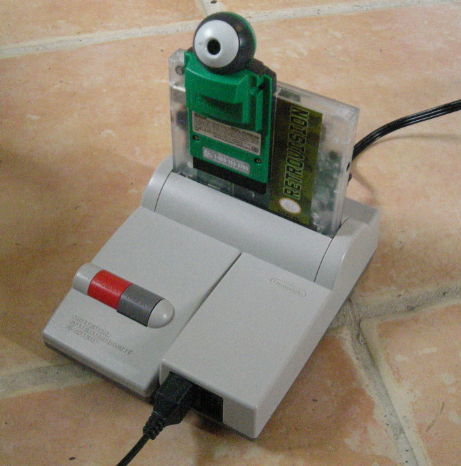This article is about a single word; the word 'Random'. It's a mysterious word that is so confusing, that I consider its meaning to be the Greatest Lottery Secret. So, read on Watson to unravel the mystery.
Lottery Lie #2 - The lottery is a random game of chance.
Can you explain what that sentence means? Let's analyze it. The words 'game of chance' refers to the fact that probabilities are involved. People all over the world play games of chance every day. Professional gamblers do too, and are quite good at it. Professional gamblers are successful because they thoroughly understand the game and they are experts at applying the laws of probability.
There are some who believe that the phrase 'game of chance' is simply code for 'you are going to lose'. But, Professional Gamblers know its real meaning; Opportunity. This is true for all games of chance, including the Lottery. Yes, you can improve your odds of winning the lottery jackpot.
The definition of the word random is, 'a process of selection in which each item of a set has an equal probability of being chosen.' If it were actually possible to implement this definition in the real world then:
In Blackjack, it would be impossible for a player to improve his odds of winning by card counting.
In Poker, it would be impossible for a player to decide how much to bet.
In the Stock Market, the investor couldn't make any money.
'Random' doesn't fit well in the real world because it is a theoretical mathematical tool. It cannot be realized or achieved in any game, on Earth, in our Solar System, in our Galaxy nor in the Universe. This should be intuitively obvious. How can anyone claim to be able to randomly select numbers from a finite list? Shortly after the process begins, trends and patterns begin to emerge. The mathematicians respond by saying, 'Well, you haven't run enough trials.'
Case in point: A coin is flipped 100 times. The results are 65 Heads and 35 Tails; an obvious trend here. So, the mathematician says, 'You have to run more trials. And, eventually the results will be equal.' So, the coin is flipped 10,000 times and, lo and behold; 5008 Heads and 4992 Tails. For all intents and purposes, the occurrences of Heads and Tails are equal and the mathematician believes that he has proven the game is random.
But it wasn't very random after 100 trials. It was somewhat more random after 1,000 trials. It looks pretty random after 10,000 trials. And, here is the bottom line. You see, random is not an absolute; its applicability changes based upon situation and circumstance. There are degrees of randomness. To further make my point, follow this real world example.
Prior to thirty years ago, the common belief was that if you went to a Casino to play Blackjack, you would lose. After all, it was a random game of chance and the odds were in favor of the Casino. But, after some MIT wiz-kids figured out how to play properly, the bottom line at the Casinos turned red and started leaking like a sieve.
So, how did the casinos respond? They took action to make the game MORE RANDOM. Automatic shufflers were installed. Cards were dealt from a boot. Two decks of cards were used; then multiple decks. Profiling was used to identify card counters and ban them from the casino. In other words, as long as you don't know what you are doing, you are welcome to play Blackjack in a casino. But, the key to this discussion are the words 'MORE RANDOM'. If it was already a random game of chance, how could it be made MORE RANDOM?
Stock Market
Another example is the Stock Market. A few years ago, the common belief was that stock prices were a random game of chance. This idea was formally put forth in 1973 in a book by Burton Malkiel called 'A Random Walk Down Wall Street'. Malkiel's premise was that the profits earned from carefully selecting five stocks based upon a detailed analysis of their past performance would fare no better than five randomly selected stocks.
The general public seemed to accept this point of view for many years and left stock market investing to the professionals. Today, however, from the top Wall Street investment firms down to the individual investor, no one is taking a random walk. Technical stock analysis software abounds. Hundreds of millions of dollars are spent each year on computer analysis of past stock prices with the overall goal of predicting tomorrow's prices. In fact, today, to invest in the stock market without thoroughly analyzing the stock's past performance would be considered amateurish, naive and foolhardy. So, what's the secret to successful stock market investing? If you invest intelligently, study the past performance of each stock and apply a basic understanding of probability you can gain an advantage.
So, what's up with the word random? Why all the confusion? As with most words, over use and misuse of the word tends to dilute its meaning. Over the years, scientists, mathematicians and engineers have misused the word random by automatically applying it to any observation or analysis that was too complex to describe with simple mathematical formulas. In almost knee jerk fashion, anything they didn't understand and couldn't explain must be random.
For example, the paths followed by two colliding gas molecules are easily predicted; not random. But, predicting the paths of trillions of gas molecules is rather daunting. So, for many years, the vibrations of gas molecules was said to be a random process only because of the shear vastness of the problem and our inability to analyze it. But, today, scientists understand that it is not random.
The same is true of the Random Walk theory. It remained a valid theory only as long as the problem remained too complex to analyze. Also, winning at Blackjack or Texas Holdem is no longer considered pure luck. So, the validity of so called random games of chance is being challenged. Over the last forty years, state sponsored lotteries have trumpeted the random draw theory; everyone has the same chance to win and nobody has an advantage. If this were true, why have the lotteries been trying to make their random games of chance, MORE RANDOM? Isn't random, random?
The answer is NO. In fact, in recent years, the concept of lottery randomness has been challenged and, like the casinos, the lotteries have responded with various actions. First, any possible mechanical advantage due to lotto ball design was addressed. The lotto ball was made more uniform. The numbers were no longer painted on the lotto balls because this unbalanced the ball. Air blower design was improved and motor speed was regulated to insure air speed did not vary with power fluctuations. Multiple machines were used and selected at random for each drawing. This has had the effect of making the lotteries appear more random. You see, random doesn't mean that trends do not exist; it simply means that trends are hard to identify.
Thank goodness for computers. Without them, the universe would be more mysterious. Investors would still be taking a Random Walk Down Wallstreet. Vibrating molecules would be considered a random process. Blackjack would still be considered a random game of chance and most people wouldn't even know what Texas Holdem is. The myth that lotteries are random games of chance would still be generally accepted as fact.
Good Luck and I hope you Win the Big One!






 Star Wars Battlefront All Missions Overview
Star Wars Battlefront All Missions Overview Gran Turismo 7 Wiki – Everything you need to know about the game .
Gran Turismo 7 Wiki – Everything you need to know about the game . Destiny Best Weapon Mods #4
Destiny Best Weapon Mods #4 9 NES Homebrew Carts You Won't Believe Exist
9 NES Homebrew Carts You Won't Believe Exist MGS V: The Phantom Pain Xbox One Controller Layout Guide On Foot, Horse, Vehicles and Walker Gear
MGS V: The Phantom Pain Xbox One Controller Layout Guide On Foot, Horse, Vehicles and Walker Gear